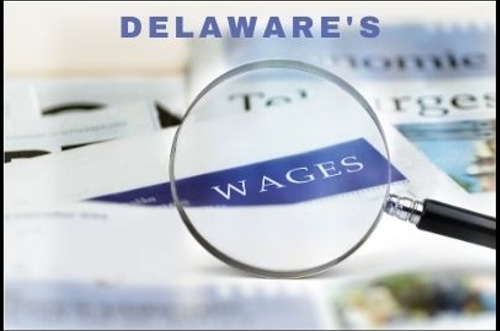
COVID-19 and Wages in Delaware
By Dr. John Stapleford, Co-Director
Center for Analysis for Delaware's Economy & Government Spending
April 7, 2021
It has long been recognized that economic planning is futile because market conditions are so fluid. The great variation in Delaware's average wages by occupation during COVID-19 confirms this.
Every May, the U.S. Bureau of Labor Statistics publishes "Occupational Employment and Wage Estimates" by state. The percentage in changes in Delaware's "Mean Hourly Wages" by occupation between May 2019 and May 2020 varies widely according to market conditions.
Over the last 12 months, despite the onset of COVID-19, the average wage by occupation in Delaware rose 4.3%. This surprising increase is likely a carryover from the strong economy of 2019.
Did you know that Delaware's restaurant industry had the strongest gains in average wage by occupation? Average wages for waiters and waitresses were up 6.5%, cooks up 5.7%, and dishwashers up 4.9%. Despite widespread COVID-19-driven closures, to attract employees, restaurants had to have wages that competed with extraordinarily high unemployment insurance benefits of up to $650 per week.
Additionally, high education and specialized occupations average hourly wages rose despite COVID-19. Wages of accountants and auditors, for example, rose 2.5%, and chemical engineers gained 3.9%.
However, at the other end of the spectrum were legal occupations' average hourly wages, which dropped to 9.8%. The hourly wage for paralegals and legal assistants fell 9.2%, and judges fell 14.2%. This happened despite an increase in hiring in legal occupations. COVID-19 conditions caused a dramatic slowdown in discretionary activity, including lawsuits.
Other occupations that endured fall-offs in average hourly wages were building cleaners and childcare workers because more and more people started working from home. The average hourly wage of healthcare practitioners even slightly dropped as COVID-19 caused a reduction in elective surgery and medical treatment.
What do we learn from these varied differences in the response of average wages to the onset of COVID-19? If nothing else, we learned that the imposition by the legislature of a $15 minimum wage across occupations and industries is foolhardy and flies in the face of the reality of the vast differences in market conditions. The legislature seeks to impose economic justice in an imperfect and complex world. And who, by the way, decided that $15 represents justice?